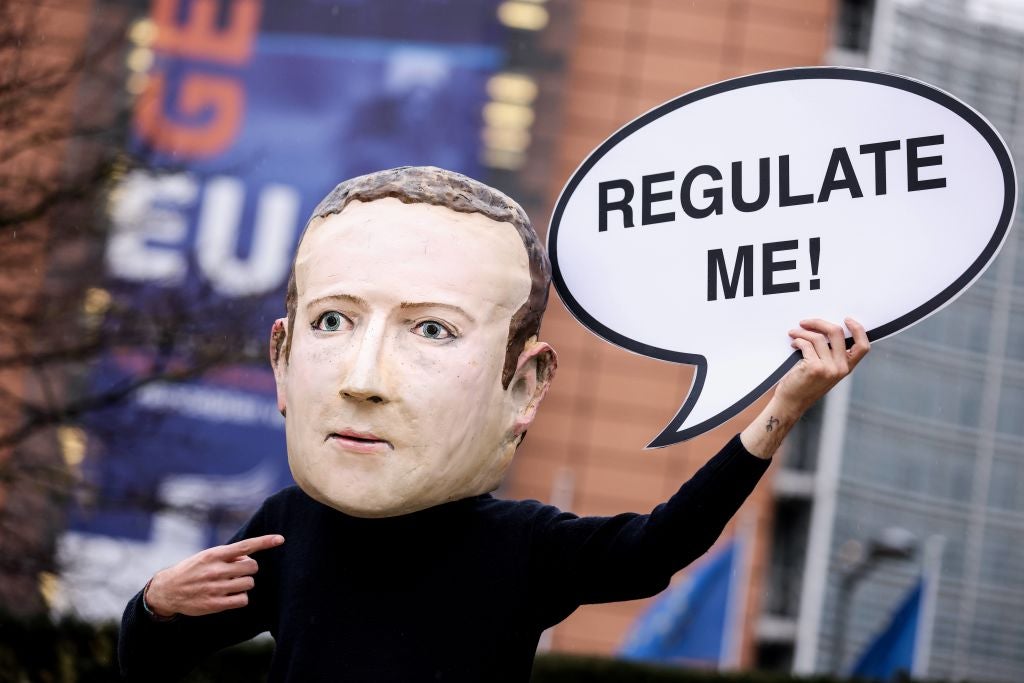
At the middle point of Investment Monitor’s ‘Big Tech backlash’ week, there was, somewhat handily, a backlash to Facebook’s decision to block the viewing and sharing of news stories in Australia. The situation stems from a spat between Big Tech companies such as Facebook and Google, the news organisations themselves, and the country’s government.
Facebook’s move is a response to Australian attempts to make the company pay for the news content on its site. This is the fair way to treat those who create the content, argue the government and the news providers. Australian Prime Minister Scott Morrison took to Facebook (of course) to state: “Facebook’s actions to unfriend Australia today, cutting off essential information services on health and emergency services, were as arrogant as they were disappointing… [Facebook] may be changing the world, but that doesn’t mean it runs it.” (Pity the poor Australian Facebook users who are unable to source these information and emergency services themselves. Have they never heard of Google? Oh…)

Discover B2B Marketing That Performs
Combine business intelligence and editorial excellence to reach engaged professionals across 36 leading media platforms.
Accusations of arrogance are frequently fired in Facebook’s direction, but it is the closing sentence of Morrison’s statement that is the most telling. The influence, the power that Big Tech companies wield frightens governments. Their lack of accountability, the lack of regulation around social media in particular, does not sit right with those on the outside looking in. No, Facebook, Twitter, Amazon, Google et al do not run the world, but they have the reach, the means and the money to influence vast swathes of its population. At Investment Monitor, and across the Monitor Network, we have spent the past week making sense of the backlash against Big Tech.
What Facebook will do next is the billion-dollar question. The backlash Down Under is just one of many that the company has faced, and with it now facing renewed criticisms of its privacy policy and a new raft of regulation to adhere to in numerous jurisdictions, could its global expansion plans be slowed down?
The most pressing regulatory headache that Facebook and its US Big Tech cohorts face is in the EU, where the biggest overhaul of the bloc’s digital legislation this side of the millennium was proposed by the European Commission on 15 December 2020. However, as Lara Williams writes in a comment piece warning the EU that it should put its own house in order before targeting Big Tech: “The European Commission’s proposal is no doubt a genuine attempt to curb anti-competitive behaviour, but, as always, the devil is in the detail. It must strike the right balance with the legislation or risk stifling innovation, or worse creating an innovation gap between Europe and other jurisdictions keenly awaiting US Big Tech investment.”
The US Big Tech companies aren’t the only bogeymen operating in the cyber-sphere, however. Much has been made over the past year of the strategies followed in Western countries by Chinese companies such as TikTok and Huawei. A tech war between the US and China could have many victims, but some countries will be worse hit than others. Is the demonisation of Chinese tech companies in the West justified though? Or are governments and tech companies in Europe and the US just worried that the Chinese upstarts will beat them at their own game? As Ben van der Merwe says in a comment piece: “Although often framed in the normative language of ‘openness’ and ‘liberalism’, Western opposition to China’s investment policies often seems more a matter of economic self-interest.” Elsewhere we look at where tech multinational companies are placing their subsidiaries (spoiler alert: it’s mostly the US).

US Tariffs are shifting - will you react or anticipate?
Don’t let policy changes catch you off guard. Stay proactive with real-time data and expert analysis.
By GlobalDataBig Tech companies seem to be playing the role of the big bad wolf on a global basis right now. Even Joe Biden has joined in the kicking spree, telling the New York Times: “I have never been a fan of Facebook, as you probably know… I have never been a big Zuckerberg fan. I think he is a real problem.” The extent to which Big Tech companies have to worry about such enemies in high places remains to be seen, but the regulatory assault that is looming could prove to be a real headache. Maybe following global leaders, as opposed to unfriending them, will be the way forwards.
Home page photo by Kenzo Tribouillard/AFP via Getty Images.



